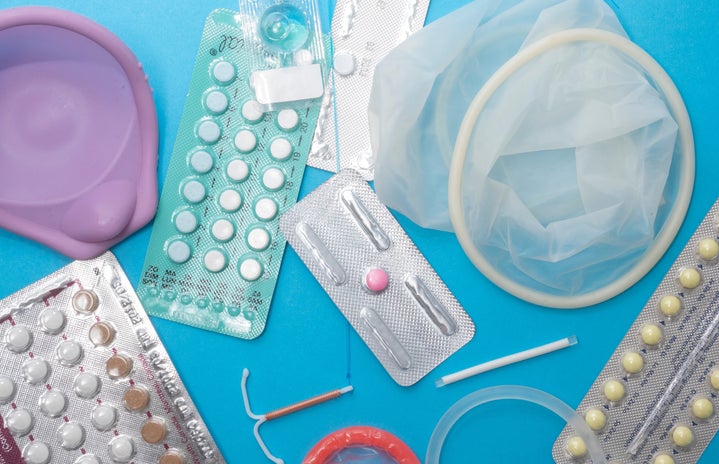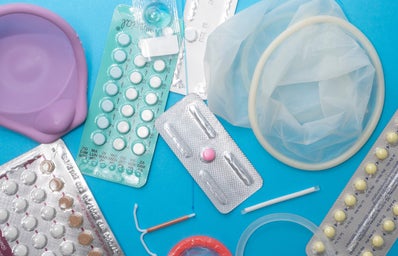Birth control is commonly prescribed to women after they have started their periods or hit puberty. It has multiple uses, the most common one being prevention of pregnancy, but some others include lighter periods, treatment for PCOS, endometriosis, PMI, PMS, and acne, as well as amenorrhea (lack of menstruation). Having had been on and off of birth control for the past 6 years or so, I never thought that people would have many qualms about starting it. I began taking the pill when I was quite young (15/16 or so), and was too naive back then to really worry about side effects and the like. I simply trusted my mother and doctor to give me the help that I needed at the time, and if the pill was the solution, then so be it.
However, my best friend recently began considering going on birth control to ease her aggressive PMS symptoms. She was prescribed the pill, but for the longest time she would refuse to take it. She would bug me for days, asking me whether she should start it today or not, and quite frankly it drove me crazy. “What are you so afraid of?” I thought. “I’ve been on this thing for years now, and I’m fine!” My best friend then began listing a series of side effects that she was fearful of, some of which I definitely experienced myself in the first week or so after starting the pill. This was the first time I realized that maybe starting BC isn’t as straightforward of a decision as I thought. For those of you who are currently on the fence, or are trying to find the motivation to start (or not), here are some pros and cons to taking birth control that I found, as well as some from my personal experience.
The way the pill works is by tricking your body into believing that it’s pregnant. Thanks to its hormonal content and effects, birth control provides multiple benefits to its takers, starting with treatment of relatively minor inconveniences associated with menstruation and going as far as preventing and alleviating the symptoms of serious diseases. Some more famous effects are the prevention of pregnancy (duh), but you can still get pregnant essentially as soon as you get off the pill. It can also help regulate your period and ease cramping, which is definitely something that I have experienced myself. BC helps reduce hormonal acne, endometriosis symptoms and reduce the risk of uterine cancer, as well as prevent cysts in your breasts and ovaries. It plays a role in preventing anemia and bone thinning and resolving amenorrhea.

Just like any other medication, hormonal birth control also has some downsides and side effects that might put people off (like my friend). Let’s just start by saying right off the bat: you should avoid using birth control if you are a smoker, have uncontrolled high blood pressure, have serious diabetes, or have had a heart attack, stroke, or other serious heart problems. If you do not fall into any of these categories, some common side effects are weight gain, nausea, mood swings, fatigue, break tenderness, and an increased appetite. According to Planned Parenthood, nausea, headaches, and breast soreness can last for 2-3 months. However, birth control shouldn’t make you feel sick, so if the negative symptoms continue for too long, you should speak to your doctor and ask for a different prescription. Aside from the more common and brief side effects, some more serious side effects would be bleeding between periods, dizziness and vision blurring, migraines, insulin resistance, depression, and blood clots or heart attack. I should also mention that hormonal birth control doesn’t protect you from STDs, so please wear a condom (even while on BC!) with irregular partners and stay safe.

In my personal experience, some positives that came out of starting BC were some breast growth, reduction in acne, lighter and less painful periods, and fewer mood swings during my period and in the days leading up to it. The first few days can be a little uncomfortable: breast tenderness, bloating and water retention, moodiness, even cramping sometimes, but for me (and most people that I know) these symptoms were gone after about 2-3 days. There may also be some weight gain, but my doctor warned me about it saying that it will only be about 2-3lbs, and that it’s only water weight, all of which has held true so far. I would say the things I struggled with the most was the weight gain (I come from a disordered eating background, which is why I was put on birth control in the first place), and the breast soreness which lasted for quite a bit and interfered with my athletics. Overall, though, the symptoms went away for me in a span of a month or so, and now I enjoy regular moods, light periods, and little acne.
Whenever you are evaluating whether you should start a certain medication, I strongly recommend that you do your own research and don’t simply follow a doctor’s orders. I hope that the pros and cons listed in this article have been illuminating in terms of demystifying birth control a little bit. If you are too worried about the side effects of birth control, I would recommend that you just stick to condoms or other physical barriers rather than the pill. However, if you feel that you would like to embark on this journey I would fully support your decision! It has been a very liberating experience for me, helped me establish a healthy cycle, and eased my anxiety about an accidental pregnancy.


